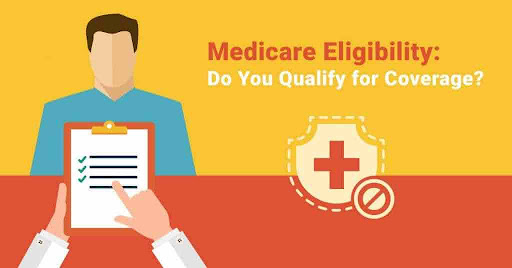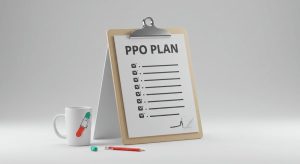Medicare is a cornerstone of health coverage in the United States, providing vital insurance to millions of older adults and certain younger individuals with disabilities. Despite its widespread availability, many people remain uncertain about at what age you can get Medicare and how enrollment works. If you’re planning for retirement—or just want to be informed about your healthcare options—this in-depth guide is for you.
In the sections below, we’ll look at eligibility timelines, special enrollment circumstances, and the common question: “When can I get Medicare if I was born in 1967?” We’ll also offer insights into the program’s different parts (A, B, C, and D), share tips for avoiding penalties, and highlight real-life reviews from beneficiaries who have navigated the Medicare system. By the end, you’ll be better prepared to chart out your enrollment strategy with confidence.
Medicare 101: A Quick Overview
Medicare is a federal health insurance program primarily designed for three groups:
- People age 65 and older
- Individuals under 65 with certain disabilities
- People of any age diagnosed with End-Stage Renal Disease (ESRD)
The program first went into effect in 1965 and has since evolved to include multiple “parts,” each covering different services—from hospital stays to prescription drugs. Originally, Medicare was envisioned as a safety net for seniors. Over time, its scope has expanded, offering more comprehensive coverage and influencing the entire U.S. healthcare landscape.
Before jumping into specific ages and rules, it’s crucial to understand that Medicare is not a one-size-fits-all plan. You may need to enroll in specific parts, based on your individual needs and circumstances. Whether you’re counting down the days until your 65th birthday or wondering if you qualify earlier due to a health condition, keep reading for a detailed breakdown.
Standard Eligibility Age: 65
For most people, 65 is the magical number associated with Medicare eligibility. If you or your spouse worked and paid Medicare taxes for at least 10 years (40 quarters), you typically qualify for premium-free Medicare Part A (hospital insurance). Still, you need to enroll in Medicare Part B (medical insurance) or have certain other coverage that is considered creditable if you don’t want coverage gaps or penalties.
Why 65?
Back when Medicare was established, 65 was a commonly accepted age for retirement in the United States. Over the decades, while the Full Retirement Age (FRA) for Social Security has gradually increased to 66 or 67 for many, Medicare eligibility has, so far, remained set at 65. This creates an interesting dynamic: you may be able to start Medicare at 65, even if your full Social Security benefit age is later.
Special Eligibility Before Age 65
Although age 65 is the standard yardstick, several scenarios can lead to Medicare eligibility before that birthday:
- Disability: If you receive Social Security Disability Insurance (SSDI) for 24 months, you become eligible for Medicare in the 25th month. This includes individuals of all ages, not just those close to 65.
- End-Stage Renal Disease (ESRD): People with permanent kidney failure requiring dialysis or a transplant typically qualify for Medicare after meeting specific criteria (such as initiating a regular course of dialysis or having a kidney transplant).
- Amyotrophic Lateral Sclerosis (ALS): If you have ALS, also known as Lou Gehrig’s disease, you qualify for Medicare automatically the same month your disability benefits start—rather than waiting the typical 24-month period.
For individuals younger than 65 who meet these criteria, Medicare offers a lifeline to comprehensive medical coverage, often when they need it most.
Find Medicare Plans in 3 Easy Steps
We can help get up to $0 monthly premium Medicare plans
When Can I Get Medicare If I Was Born in 1967?
A frequent question is, “When can I get Medicare if I was born in 1967?” Given that the standard eligibility remains age 65, you’ll generally qualify for Medicare in 2032 (65 years after 1967). However, there are a few nuances:
- Enrollment Periods: Your Initial Enrollment Period (IEP) typically begins 3 months before you turn 65, includes your birth month, and extends 3 months after you turn 65.
- Social Security Full Retirement Age: If you were born in 1967, your full retirement age for Social Security might be 67—but Medicare does not require you to wait until 67.
- Early or Delayed Enrollment: Even if you decide to keep working past 65, you typically become eligible for Medicare at 65. Whether you enroll depends on factors like employer coverage.
For individuals born in 1967 who do not have a disability or ESRD, your path to Medicare is straightforward: you start the process in the months leading up to your 65th birthday to ensure continuous coverage and avoid penalties.
Enrollment Periods: What You Need to Know
Initial Enrollment Period (IEP)
Your Initial Enrollment Period is a 7-month window that includes:
- 3 months before your 65th birthday
- The month you turn 65
- 3 months after your 65th birthday
- Example: If you turn 65 in June, your IEP runs from March 1 to September 30 of that year.
- Tip: If you enroll before your birthday month, coverage usually starts the month you turn 65. If you wait until or after your birthday month, coverage may be delayed.
Special Enrollment Period (SEP)
A Special Enrollment Period may apply if you delayed enrolling in Medicare due to credible employer coverage. For instance, if you’re still working at 65 and your employer provides health insurance, you can postpone Part B without incurring penalties. Once your employment or coverage ends, you generally have 8 months to enroll in Part B without a late fee. There are also SEPs for other life events, like moving out of a Medicare Advantage plan’s service area.
General Enrollment Period (GEP)
If you miss both your IEP and SEP, you might have to enroll during the General Enrollment Period (January 1 through March 31 each year). However, your coverage won’t begin until July 1, and you may face late enrollment penalties.
Find Medicare Plans in 3 Easy Steps
We can help get up to $0 monthly premium Medicare plans
Breaking Down Medicare Parts A, B, C, and D
Now that we’ve covered at what age you can get Medicare and essential enrollment periods, let’s look at the core components of Medicare:
- Medicare Part A (Hospital Insurance): Covers inpatient hospital stays, skilled nursing facility care, home health care, and hospice. If you or your spouse have at least 40 quarters of Medicare taxes (roughly 10 years), you won’t pay a premium for Part A.
- Medicare Part B (Medical Insurance): Covers outpatient care, doctor’s visits, preventive services, and certain durable medical equipment. Most people pay a monthly premium for Part B, which is adjusted each year.
- Medicare Part C (Medicare Advantage): Offered by private insurers, Medicare Advantage plans bundle Part A and Part B, and often Part D (prescription drug coverage), into a single plan. Plans may offer extra benefits like vision, dental, or hearing services. However, network restrictions and out-of-pocket costs vary.
- Medicare Part D (Prescription Drug Coverage): Offered by private insurance companies, Part D helps cover the cost of prescription medications. You can enroll in a standalone Part D plan if you have Original Medicare or get prescription drug coverage as part of a Medicare Advantage plan.
Avoiding Late Enrollment Penalties
Medicare imposes late enrollment penalties to encourage timely sign-ups and maintain stable financing. Two penalties are particularly common:
- Part B Late Enrollment Penalty: For every 12-month period you go without Part B coverage, your monthly premium increases by 10%—permanently—unless you had qualifying employer coverage.
- Part D Late Enrollment Penalty: If you go 63 days or more without creditable prescription drug coverage, you could face a penalty added to your monthly premium.
Strategy: If you’re working after age 65, verify with your benefits administrator that your employer coverage is considered creditable by Medicare. Keep any documentation you receive. It could protect you from penalties later.
Find Medicare Plans in 3 Easy Steps
We can help get up to $0 monthly premium Medicare plans
Reviews and Real Stories
Hearing from others who’ve navigated Medicare can provide reassurance and clarity:
- Sandra, 68, Florida: “I was confused about when I was supposed to enroll, especially since I planned to work until I was 66. Luckily, my employer’s coverage was good enough that it counted as creditable, so I enrolled in Part B right after I retired. The process was pretty seamless!”
- Miguel, 65, Texas: “I signed up for Medicare the day I turned 65—didn’t want to risk any penalties. I was worried about the cost, but it ended up being more affordable than I expected. Plus, I was able to keep my doctor because I went with Original Medicare and a Medigap plan.”
- Patricia, 64, California: “I’m turning 65 next year, and I’ve been doing my research early. Just learned that it’s okay to delay Part B and Part D if I have creditable coverage from my union’s insurance. That saved me a lot of anxiety!”
- Eugene, 70, Pennsylvania: “When I first enrolled, I had no idea I needed Part D if I didn’t have prescription coverage. I ended up paying a late enrollment penalty. If I could do it again, I’d enroll on time. Definitely read the fine print!”
Frequently Asked Questions (FAQs)
- What if I’m already receiving Social Security benefits before 65?
If you’re already receiving Social Security benefits when you turn 65, you’ll typically be automatically enrolled in Medicare Parts A and B. Keep an eye on the mail for your red, white, and blue Medicare card. - When can I get Medicare if I was born in 1967?
You generally become eligible at age 65, which will be in 2032 for someone born in 1967. Your Initial Enrollment Period starts 3 months before your 65th birthday and ends 3 months after. - Can I work past 65 and still get Medicare?
Yes. Many people continue working beyond 65. You can enroll in Medicare at 65 and use it as secondary insurance to employer coverage or delay Part B if your employer coverage is creditable. - What if I miss my Initial Enrollment Period?
You may have to wait until the General Enrollment Period (January 1–March 31), and your coverage won’t start until July 1. A late enrollment penalty may also apply unless you qualify for a Special Enrollment Period. - Is Medicare free?
Medicare Part A is usually premium-free if you or your spouse worked and paid Medicare taxes for 10 years or more. Part B has a monthly premium, which is set annually. Additional costs apply for Part C and Part D, depending on your plan choices. - Does Medicare cover everything?
Original Medicare (Parts A and B) doesn’t cover everything—dental, vision, hearing aids, and long-term care are common gaps. You can opt for a Medigap (Supplement) plan or Medicare Advantage to help fill coverage gaps.
References
- Medicare.gov
https://www.medicare.gov
(Official site for the latest information on eligibility, coverage, and enrollment periods.) - Social Security Administration
https://www.ssa.gov
(Provides details about retirement benefits, disability benefits, and how they intersect with Medicare.) - CMS (Centers for Medicare & Medicaid Services)
https://www.cms.gov
(Source for official Medicare policy updates, forms, and educational materials.)
Conclusion
At what age can you get Medicare? For most Americans, the milestone is 65. Yet, the system accommodates those who need coverage earlier because of disability or chronic conditions like End-Stage Renal Disease. If you were born in 1967, you can typically begin your enrollment journey 3 months before your 65th birthday in 2032—even if your full Social Security retirement age is 67.
Understanding enrollment periods, premium requirements, and penalties can save you a great deal of money and stress. Whether you choose Original Medicare (Parts A and B) plus a Medigap policy, or opt for Medicare Advantage (Part C), knowing the rules and deadlines will help you avoid costly pitfalls. And if you’re among those still working beyond age 65, be sure to confirm whether your employer coverage is creditable—this makes a big difference in whether you can delay Medicare without penalty.
Navigating Medicare may feel overwhelming at first, but you’re not alone. Leverage official resources like Medicare.gov, and don’t hesitate to reach out to advisors or counselors at your local State Health Insurance Assistance Program (SHIP). With the right planning, you’ll be well on your way to a secure, well-informed transition into Medicare—whenever the time comes.







